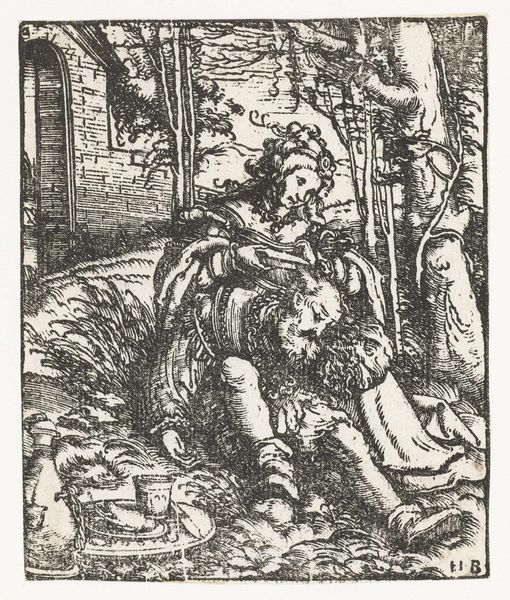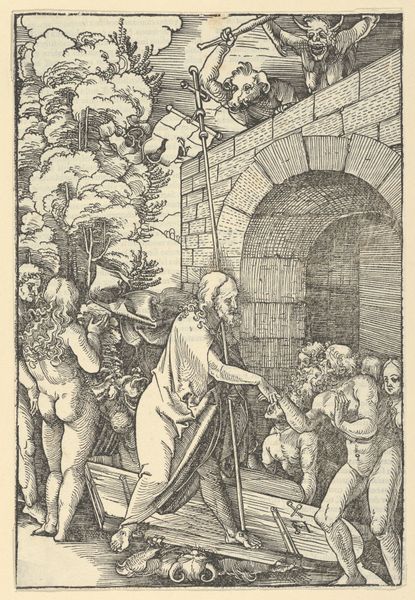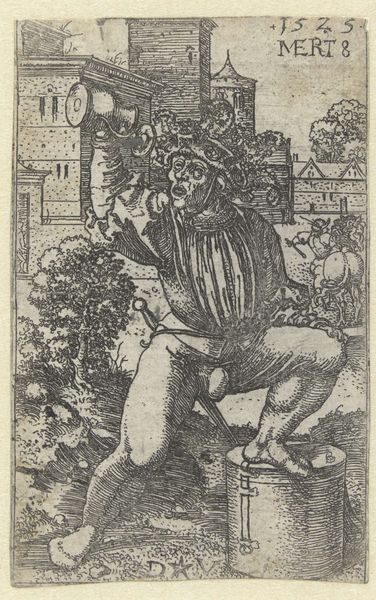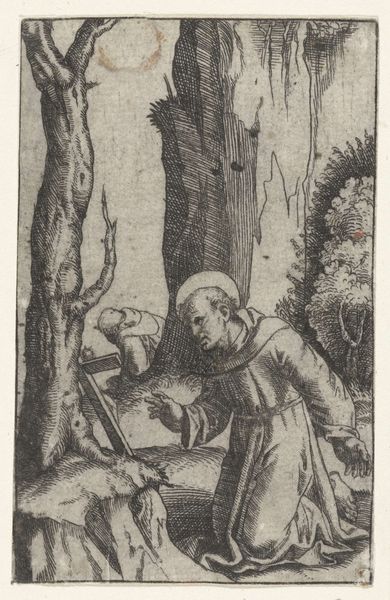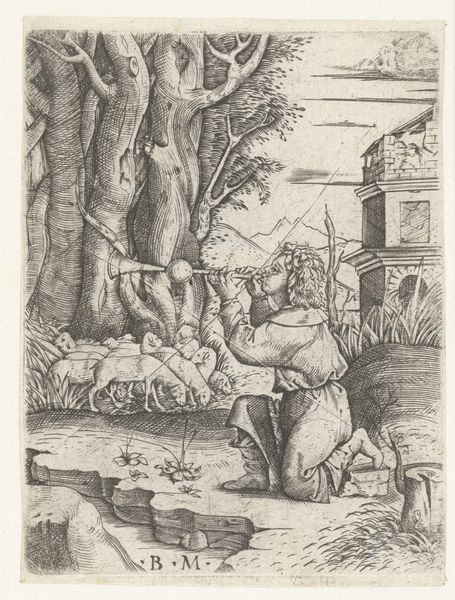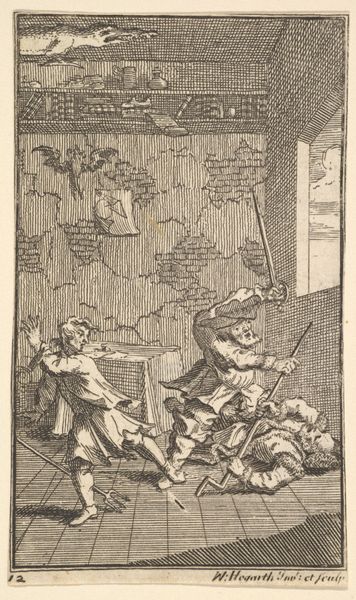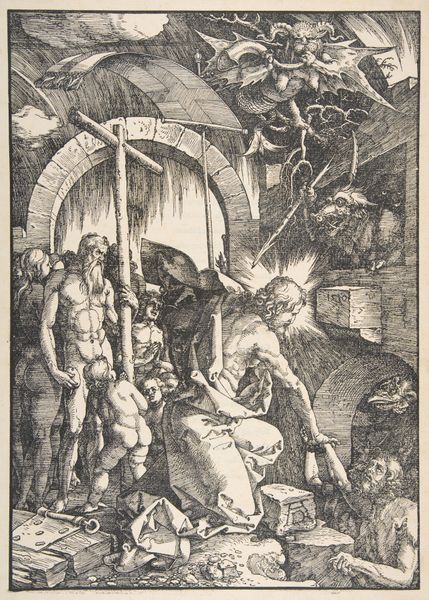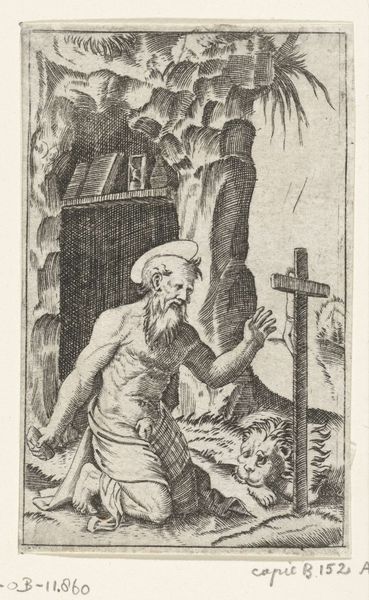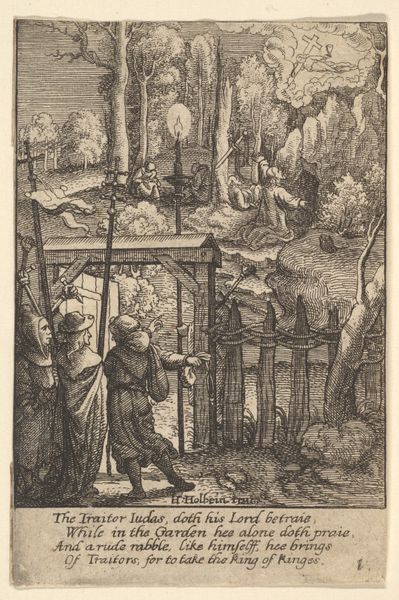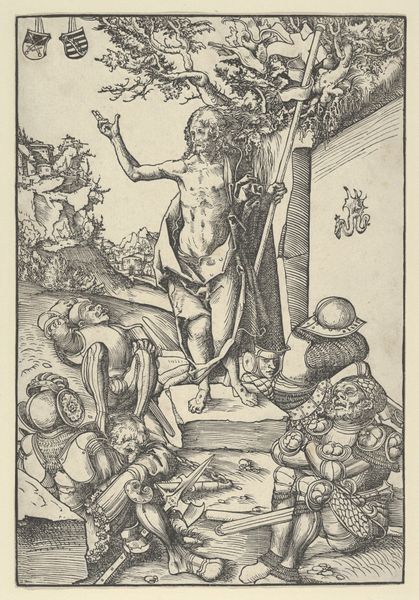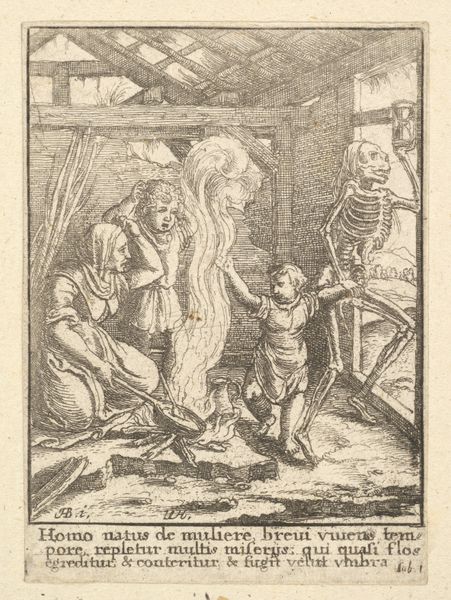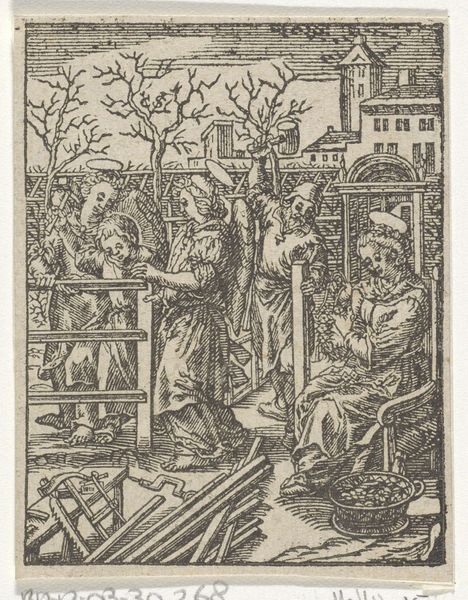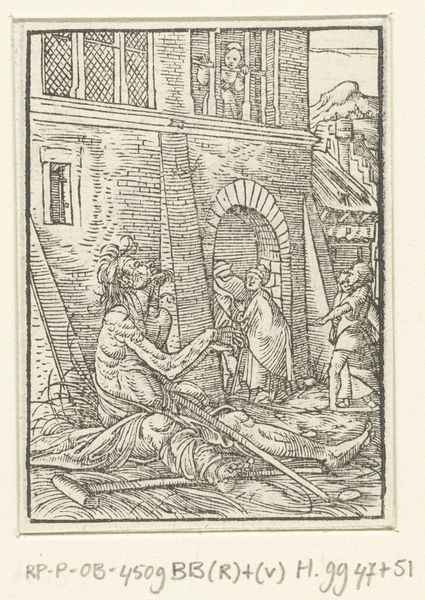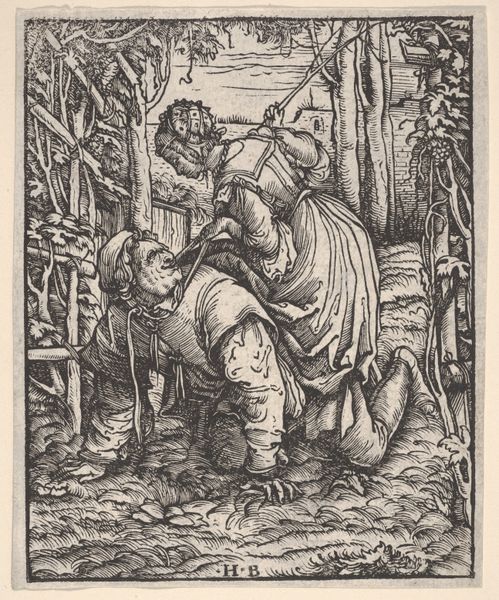
print, engraving
#
narrative-art
#
pen drawing
# print
#
pen illustration
#
pen sketch
#
old engraving style
#
figuration
#
11_renaissance
#
history-painting
#
northern-renaissance
#
engraving
Dimensions: height 120 mm, width 96 mm
Copyright: Rijks Museum: Open Domain
Albrecht Altdorfer created this woodcut, Pyramus and Thisbe, sometime in the first half of the 16th century. It depicts a scene from Ovid's Metamorphoses, in which the star-crossed lovers meet their tragic ends. Altdorfer was working in a unique moment in the history of printmaking. This new technology allowed for the mass distribution of images across Europe, connecting audiences in ways previously unimaginable. In the German-speaking lands, printmaking developed closely with the rise of humanism and the reformation. Artists like Altdorfer pushed the boundaries of the medium, experimenting with perspective and composition to create highly expressive works. In this print, the dense forest setting becomes a stage for the lovers' drama, as Thisbe discovers Pyramus’s body. Here, the artist's dense, almost chaotic lines reflect the emotional intensity of the scene. As historians, we can look to sources like contemporary literature, religious tracts, and social commentaries to better understand the cultural context in which Altdorfer was working and how audiences at the time may have interpreted this image.
Comments
No comments
Be the first to comment and join the conversation on the ultimate creative platform.
